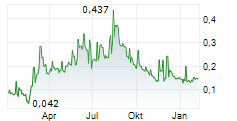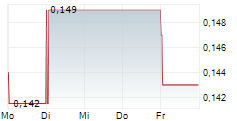STOCKHOLM, SE / ACCESS Newswire / October 14, 2025 / AlzeCure Pharma AB (publ) (FN STO:ALZCUR)(STO:ALZCUR)(FRA:AC6), a pharmaceutical company that develops candidate drugs for diseases affecting the nervous system, focusing on Alzheimer's disease and pain, today announced that a response letter has been published related to the previously published scientific article on Alzstatin and the lead drug candidate in the project, ACD680.
The response letter, titled Response to the Letter to the Editor on "?-Secretase modulation and plaque regression in Alzheimer's disease", has been published online in The Journal of Pharmacology and Experimental Therapeutics (JPET) and is written by Gunnar Nordvall, PhD and Director of Medicinal Chemistry at AlzeCure Pharma. Co-authors include Johan Lundkvist and Johan Sandin, as well as several academic researchers, including Swedish professors Henrik Zetterberg and Bengt Winblad, and professors John Cirrito and Jin-Moo Lee from Washington University.
The published post is a response to a post published by Ghosh et al.* following the recently published scientific article regarding Alzstatin.
Substances in the Alzstatin project, so-called gamma-secretase modulators, reduce the production of toxic amyloid-beta 42 protein (Aß42), which is the building block of the amyloid plaques found in the brains of Alzheimer's patients. In addition, the production of shorter Aß peptides, such as Aß37 and Aß38, increases, which have been reported to have protective effects and, among other things, can reduce the aggregation of Aß42. The results also show that gamma-secretase modulators can stop the growth and reduce the amount of amyloid plaques in the brain of animal models.
"The post aims to clarify the possibilities in the field and demonstrate the unique properties of this class of substances for the treatment of patients with Alzheimer's disease," said Gunnar Nordvall, Director of Medicinal Chemistry at AlzeCure Pharma.
"ACD680, the lead drug candidate in the Alzstatin project, is a highly potent small-molecule gamma-secretase modulator that, like Roche's compound, currently undergoing phase II clinical trials, has the advantage of being taken as a tablet, is cost-effective and optimized to cross the blood-brain barrier," said Martin Jönsson, CEO of AlzeCure Pharma. "In addition, ACD680 is a disease-modifying and preventive treatment with a larger potential patient population than the antibody treatments that have recently reached the market."
*Ghosh et al., JPET, Volume 392, Issue 10, 2025,103687
The response letter is now available online via the following link: https://www.sciencedirect.com/science/article/pii/S0022356525399015
For more information, please contact
Martin Jönsson, CEO
Tel: +46 707 86 94 43
martin.jonsson@alzecurepharma.com
About AlzeCure Pharma AB (publ)
AlzeCure® is a Swedish pharmaceutical company that develops new innovative drug therapies for the treatment of severe diseases and conditions that affect the central nervous system, such as Alzheimer's disease and pain - indications for which currently available treatment is very limited. The company is listed on Nasdaq First North Premier Growth Market and is developing several parallel drug candidates based on three research platforms: NeuroRestore®, Alzstatin® and Painless.
NeuroRestore consists of two symptomatic drug candidates where the unique mechanism of action allows for multiple indications, including Alzheimer's disease, as well as cognitive disorders associated with traumatic brain injury, sleep apnea and Parkinson's disease. NeuroRestore has received an EU grant from the European Innovation Council and is being prepared for phase 2. Alzstatin focuses on developing disease-modifying and preventive drug candidates for early treatment of Alzheimer's disease. Painless contains two projects: ACD440, which is a drug candidate for the treatment of neuropathic pain with positive phase 2 results and orphan drug designation from the FDA for the rare disease erythromelalgia, and TrkA-NAM, which targets severe pain in conditions such as osteoarthritis. AlzeCure aims to pursue its own projects through preclinical research and development through an early clinical phase, and is continually working on business development to find suitable outlicensing solutions with other pharmaceutical companies.
FNCA Sweden AB is the company's Certified Adviser. For more information, please visit www.alzecurepharma.se.
About Alzstatin
AlzeCure's disease-modifying research platform, Alzstatin, consisting of disease-modifying and preventive drug candidates, focuses on reducing the production of toxic amyloid beta (Aß), such as Aß42, in the brain. Aß42 plays a key pathological role in Alzheimer's and begins to accumulate in the brain years before clear symptoms develop. The drug candidates in the Alzstatin platform modulate the function of the enzyme gamma secretase. Gamma secretase acts like a pair of scissors and cuts Aß42 out from a longer protein known as APP. The sticky Aß42 clumps together giving rise to the amyloid plaque so typical of Alzheimer's disease. The candidates in the Alzstatin platform affect enzyme function so that it instead cuts out shorter forms of the Aß peptide, Aß37 and Aß38, which in addition to them not being sticky and not forming aggregates, also have a restrictive effects on Aß42 aggregates already formed. This means the drug candidates in the Alzstatin platform have two separate but synergistic effects that together contribute to a stronger anti-amyloidogenic - and thus more potent - disease-modifying effect. This specific mechanism of action differentiates it from biological therapies, e.g. antibodies. Moreover, small molecules such as Alzstatin, have several other advantages, including easy and non-invasive administration as tablets or capsules. Small molecules will also generally pass more readily through the blood-brain barrier to reach its target, the brain.
About Alzheimer's disease
Alzheimer's disease is the most common form of dementia, affecting approximately 55 million people worldwide, and the number is estimated to triple in the next 30 years if nothing is done. Alzheimer's disease is a lethal disorder that also has a large impact on both relatives and the society. Today, preventive and disease modifying treatments are missing. The main risk factors to develop Alzheimer's are age and genetic causes. Even though the disease can start as early as between 40 and 65 years of age, it is most common after 65 years. Significant investments in Alzheimer research are being made because of the significant unmet medical need and the large cost of this disease for healthcare and society. The total global costs for dementia related diseases are estimated to about 1,300 billion USD globally in 2019. Given the lack of both effective symptomatic treatments and disease modifying treatments, including preventive treaments, the need for new effective therapies is acute. The few approved drugs on the European market today have only a limited symptomatic effect and can produce dose limiting side effects. A disease modifying treatment for Alzheimer's disease is estimated to reach more than $15 billion in annual sales. In Sweden, approximately 100,000 people suffer from Alzheimer's disease with a healthcare cost of about SEK 63 billion yearly, which is more than for cancer and cardiovascular diseases combined.
Image Attachments
Martin Jönsson And Gunnar Nordvall AlzeCure Pharma
Attachments
Response letter to previous article published about Alzstatin's unique mode of action against Alzheimer's
SOURCE: AlzeCure Pharma
View the original press release on ACCESS Newswire:
https://www.accessnewswire.com/newsroom/en/healthcare-and-pharmaceutical/response-letter-to-previous-article-published-about-alzstatins-unique-1086663



